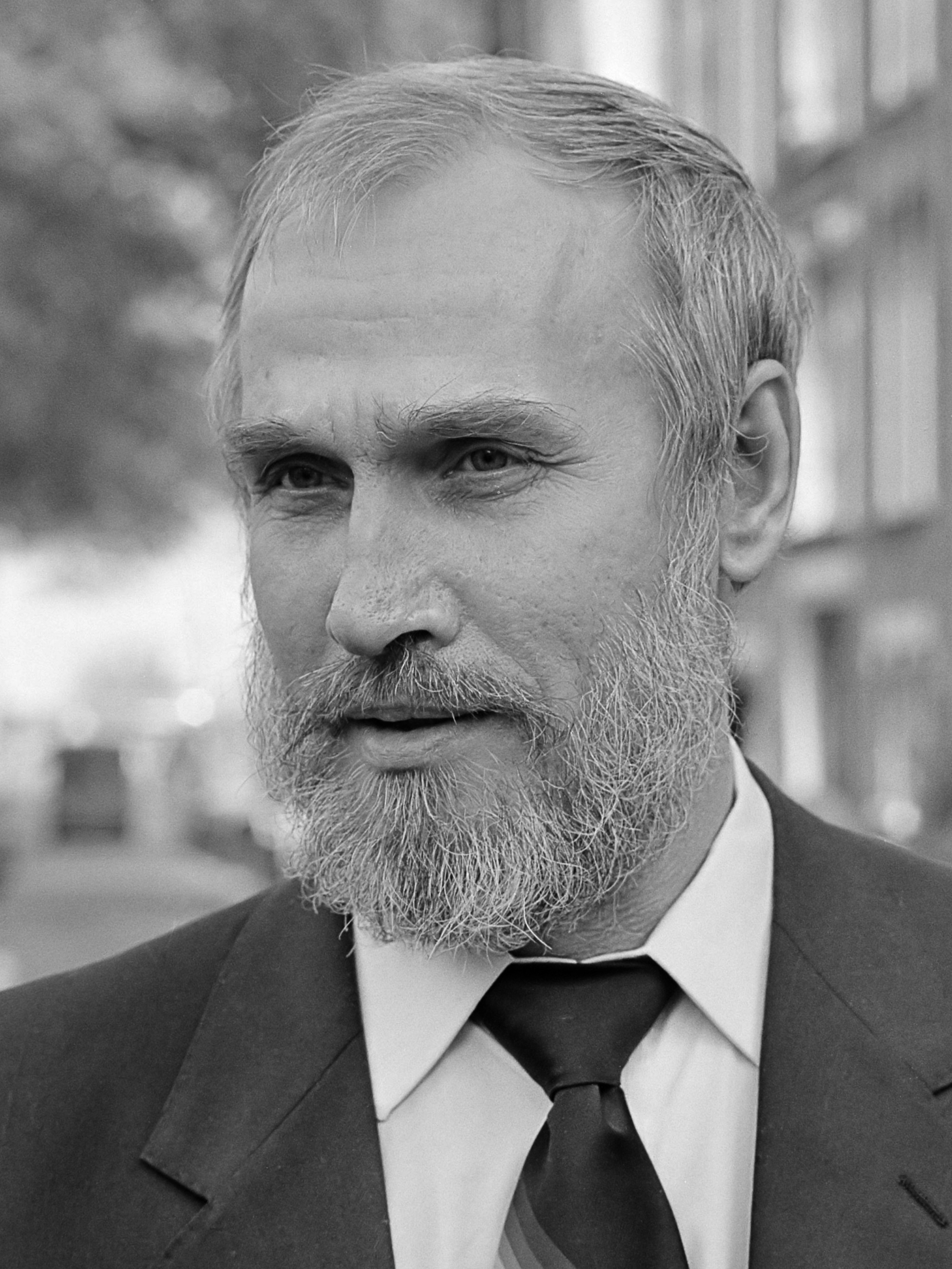 |
| Dr Anatoly Koryagin, 1987 |
In 1981, Dr Koryagin was sentenced to twelve years in prison after documenting the hospitalization and drugging of dissidents within the USSR. His official crime? Possession of ''foreign magazines'' in his home and writing anti-Soviet articles. According to the New York Times, the Soviet police described him as an ''ideologically unstable person''.
In 1982, Dr Koryagin was transferred from Camp 37 in Perm (a former gulag) to Chistopol prison in the Tartar republic. Anatoly Koryagin was integral to bringing the treatment of political dissidents in the USSR into the public eye. Not only did he publish articles before his capture, but his time in prison caught the attention of dozens of Western newspapers. While in prison, he held hunger strikes and relayed information through his wife, also a doctor. While being force-fed and drugged (specifically with neuroleptics) Anatoly Koryagin became a symbol of resistance against the Soviet regime and against the oppression of political dissidents. The New York Times quoted his wife after she visited him in September 1983: ''He was like a medusa, so bloated that his neck was wider than his face. It was covered with edemas caused by protein starvation.'' For more than two years after his wife visited, no family members or colleagues were allowed to visit; there was no word if Dr Koryagin was even alive. Following his release, Dr Koryagin said the following:
''During the last few years we hear of more and more doctors being employed by political powers in repression. Crimes take place that compromise medicine at large. People cannot tell apart those who heal and those who torture. Therefore world medicine is in need of a broad movement to reconfirm ethical standards."
Partially due to Koryagin's work and his imprisonment gaining public attention/concern, the US Helsinki Commission and the State Department launched an investigation into Russia's accused psychiatric abuse. Clinical interviews were conducted with 27 patients and
"the delegation found that there was no clinical basis for the judicial finding of nonimputability in 17 of these cases. In fact the delegation found no evidence of mental disorder of any kind in 14 cases. It is likely that these individuals are representative of many hundreds of others who were found nonimputable for crimes of political or religious dissent in the Soviet Union, mainly between 1970 and 1990."
Sources
http://www.nybooks.com/articles/1983/03/03/the-attack-on-anatoly-koryagin/
http://www.nytimes.com/1987/05/14/us/psychiatric-abuse-in-soviet-assailed.html
http://articles.latimes.com/1987-03-26/news/mn-459_1_anatoly-koryagin
http://www.nytimes.com/1985/09/19/opinion/abroad-at-home-a-question-of-confidence.html
http://jaapl.org/content/jaapl/30/1/136.full.pdf
Karenna, I thought this was really a very well researched article and found it very interesting to see what the Western response was to he abuse going on throughout the USSR. I find it really disgusting the way that Koryagin and I'm sure countless others were treated. I wanted to research more on exactly what was done to him when he was kept in isolation and found that he was repeatedly kept in freezing solitary confinement. “The cold made it impossible to sleep,” he recently wrote. “Night becomes endless torment. Sleep consists of brief moments dozing brought to an end by fits of uncontrollable shivering and all-pervasive cold. One’s feet freeze solid."
ReplyDeleteSource: http://www.psychiatrictimes.com/articles/koryagin-suspicious-glasnost-recounts-ongoing-soviet-abuses
Karenna, I really liked your article because I did not know who Koryagin was before I read your very concise article. I agree that he had a large role in exposing the political crimes of the Soviet Union to the world. I was curious to learn more about how soviet dissidents were treated. Using the source http://www.jewishvirtuallibrary.org/refusniks I learned about the refusniks. Similar to Koryagin, their cause led to American objection to soviet human rights. The situation did not get much better until Gorbachev came to power. I also did not know what neuroleptics were but using the source https://www.medicinenet.com/script/main/art.asp?articlekey=10983 I found out that they were a tranquilizing drug.
ReplyDeleteKarenna, this was a very interesting post about a lesser known player in the Cold War. I did some more research on Koryagin and I learned that he was nominated for a Nobel Peace Prize and Russia withdrew from the World Psychiatric Association because they did not wish to comply with the accusations of abuse placed on the Soviet Psychiatric Society. I think that these accusations arose because of Koryagin's work and that he made a big impact on the the Cold War, even though he is not often talked about. Thanks for such an interesting post!
ReplyDeletehttps://www.upi.com/Archives/1987/04/24/Dissident-psychiatrist-Anatoly-Koryagin-a-1987-Nobel-Peace-Prize/5534546235200/